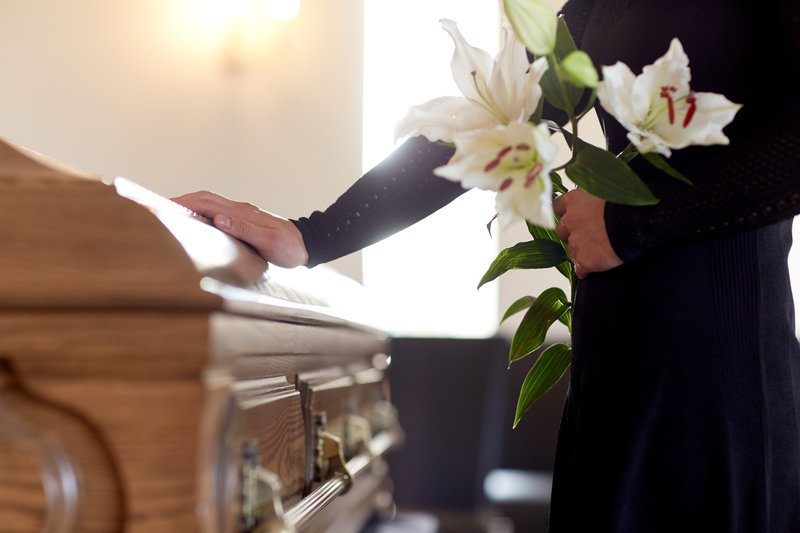While not a legal requirement, most families choose to go through funeral homes for arrangements, as they have the facilities and ability to provide the regulated standard of care required for the handling, storage and disposition of the deceased. This makes them a valuable service for grieving families and loved ones, and helps ensure all legal necessities have been put into place.
In this blog, Goodman Group explains what the legal requirements of funerals are, and how funeral homes are able to help you meet them.
Notifying the coroner of a death
If a death has not already been reported, it is a statutory requirement to notify a coroner or a senior police officer of a reportable death. Reportable deaths consist of deaths that require investigation by a coroner, although being reportable does not necessarily equate to a suspicious death.
A coroner may investigate a death caused by accident or injury, such as a road fatality, workplace death, drownings or animal attacks in addition to unnatural deaths like suicides, overdoses and homicides.
In Victoria it is an offence to dispose of a body that could be classified as a reportable death before it is examined by a coroner. There is no need to report these kinds of deaths in all instances, however – if a registered medical practitioner is present, they are obligated to report the case to the coroner without delay.
Coronial inquests
The coroner can demand an inquest if there is a fire-related or reportable death, which will then result in an investigation. Depending on whether it is necessary for determining the cause of death, an investigation can then be ordered by the coroner. If the coroner goes on to find information worth reporting, they have the power to make recommendations to any minister, public statutory authority or entity. Any relevant reports must then be published on the internet (unless advised by the coroner).
The registration of death
A death is registered by a doctor who last attended a deceased individual during the last illness or after the body is examined after death. This occurs by the doctor singing and sending off a notification to the Births Deaths and Marriages registrar within 48 hours of the death. This notification must also be supplemented by a completed form signed by the funeral director (or whoever is in custody of the body) within seven days of the disposal of the body.
Burial and cremation procedures
Burial occurs after the cause of death has been ascertained, whether this be from the case of a reportable death or information disclosed by a medical practitioner. With these legal matters handled, the party managing the funeral of the deceased individual will now consider how to manage the funeral and organise cremation or burial of the body (the will of the deceased will usually indicate what the deceased wanted).
As mentioned previously, the law does not require a minister or formal ceremony for the funeral. It is also not stipulated that embalming, the requirement for a notice of death in the newspaper, or the delivery of the coffin to the cemetery or crematorium in a hearse. A private vehicle may be used, but it is recommended that a covered vehicle with curtains on the windows is used.
The next of kin are not obliged to arrange a funeral, but if there is an executor named in the will, this executor will have custody of the body and shall have control over the disposal of the body. If an executor is not named, friends or family can organise the funeral without having to also administer the dead person’s affairs.
After the funeral
The Executor of the Will is not legally obliged to hold a ‘reading of the Will’ but is expected to locate and contact all beneficiaries named within the document. All persons mentioned within the Will are entitled to inspect or obtain a copy for themselves, and should they wish to contest the will, they may do so for up to 6 months after the grant of probate has been issued.

